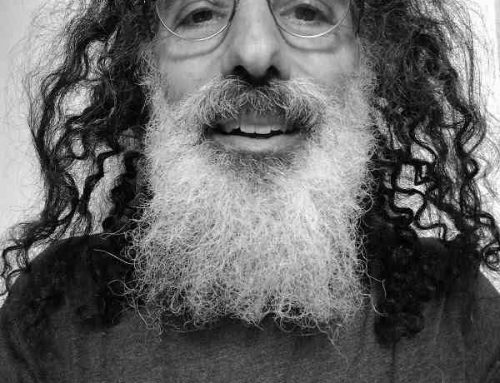by Allie Burke
Spoiler alert: you don’t have to if you don’t want to.
I happened to be scrolling Twitter yesterday and came across a tweet that suggested something about mental health and advocacy that I hadn’t ever considered before.
The tweet said:
“If you hide your mental illness you are inadvertently perpetuating stigma.
If you hide your mental illness you are significantly reducing your chances of ever learning to live with it or overcome it.
Mental illness loves silence, mental illness and silence are the enemy.”
Now, if you don’t follow me, you wouldn’t know how I conduct myself on social media but to give you a little background on myself, I rarely ever engage in arguments on the Internet. There are several reasons for that. The most prevalent of those reasons being, I have published a lot and have received some really awful comments on things I’ve written. I don’t even read the comments on my articles anymore because of how horrible people can be. A lot of people on the Internet can be so cruel that their commentary defies logic. As noted in a Women’s Health article I was featured in, somebody told me once to kill myself because I had schizophrenia. The point being that I rarely ever respond to anything that I don’t agree with, because it can be triggering if people respond with personal attacks.
That being said, as a mental health advocate, I feel that it is my purpose to give a voice to those who don’t feel they have one. That is why I write specifically about schizophrenia. As a schizophrenic, I am in a unique position to raise awareness about the illness and it is severely underrepresented as far as mental health advocacy goes. To provide some context, The Mighty, a well-known health community, has 94 articles on schizophrenia and 960 articles on bipolar disorder. I can’t say definitively why there is so little advocacy on schizophrenia in comparison to other mental illnesses like bipolar disorder, only speculate, and my speculation is that there is a stigma associated with schizophrenia that we have not yet been able to dent. Celebrities don’t talk about schizophrenia like they do bipolar disorder or other forms of mental illness. There is also a lack of awareness about how schizophrenia actually affects people. To this day, if there is an incident of mass violence, the media immediately jumps to the conclusion that the perpetrator is schizophrenic. In fact, it is far more common for innocent people dealing with schizophrenia to be shot and killed by police for hiding in the bathroom. With statistics like these, wouldn’t you be afraid to openly admit that you have schizophrenia? I am, even after writing hundreds of articles on the topic. But I don’t think keeping your mental illness to yourself perpetuates stigma (inadvertently or not). Society treats people with schizophrenia very different from people with a broken arm, or cancer. People affected by cancer never had to advocate for being treated like human beings; we automatically empathize with them for the challenges they face. In the same way, as schizophrenics, we shouldn’t have to advocate anything to be treated with empathy and respect. Some of us choose to, but we shouldn’t have to, and we definitely shouldn’t be shamed further into thinking that our silence makes us accountable, in any degree, for the stigma that already exists.
Though I felt I needed to address this tweet for the schizophrenic people, I did not respond to it directly. Instead, I wrote my own tweet to assure those with this disorder that the way they are stigmatized is not their fault.
“Please do not ever shame schizophrenics for “hiding.” Until schizophrenics are treated with more care by society, there is no shame in hiding if you’re not comfortable telling people. And you’re not perpetuating stigma. This is not your fault.”
What proceeded from there is exactly what I try to avoid, an argument that did not end well, but it doesn’t add productive insight to the purpose of this story, so I won’t share it here.
The account that posted the tweet in question was initiated in September 2018, so I can only deduce that the person who owns it is a relatively new mental health advocate. And I can understand being new to the community; I too wanted to challenge the status quo when I first started writing about this disorder and subsequently developed the Stigma Fighters non-profit organization with CEO & Founder Sarah Fader and Assistant Vice President Sarah Comerford. I have learned many lessons since then, the most valuable of them being that a lot of what is said and written in this community is an opinion. And that is 100% okay. We live in a beautiful world where we have the technology to share ideas in real time and I would encourage everyone I know to do that if that’s what brings you joy. It is all dependent on what you are comfortable with, and if you are comfortable with being open about having schizophrenia, please use the world as your platform and do it. Diversely though, if you are not comfortable with it, that is totally okay too. Do not be shamed into thinking your decision to keep something so personal—like living with schizophrenia—is the reason we are all treated the way we are in society’s view. I know that because I have been writing about living with schizophrenia for years, and I still experience stigma every day. I promise you that the stigma is not your fault; it has nothing to do with you as a person and everything to do with what society has already decided on their own, long before you were diagnosed with schizophrenia.
Please remember, this perspective that was presented is an opinion, like so many others are, and is not necessarily the reality. This will happen in mental health advocacy, and though it can sometimes be triggering and damaging and hurtful, it is not a reflection of who you are.
The author understands that many advocates choose to identify as a “person with schizophrenia” as a way to not be defined by their illness. She writes using “schizophrenic” because her personal goal is to own schizophrenia as a part of herself. Though the use of “schizophrenic” in this piece is intentional, she fully respects others for their decision to identify otherwise.
Allie Burke is a founding member and executive chair of the Stigma Fighters non-profit organization. She writes about living with paranoid schizophrenia and has been featured in Psychology Today, Refinery 29, and VICE.
http://selflessstateofmind.com







very interesting work you are doing. i am interested in helping if i can. i have been diagnosed with schizo-affective and bipolar disorder. let me know if i can assist.
Wow, Allie! I just watched the Vice piece, which I found quite moving. You seem to be in a good place right now, and are certainly doing excellent and valuable work. Thank you for being so open with your experiences. What I have read here, along with the Vice piece, goes a long way towards bettering my own understanding of Schizophrenia.
While I don’t personally have this condition, I know (and have known) several people who do. Their various manifestations of the condition are linked by one aspect they all share: the feeling of being somehow inadequate or worthless. This is such a destructive attitude, especially when it becomes a self-fulfilling prophesy. As you probably know, this attitude is not limited to those diagnosed with schizophrenia, so it’s really heartening for many folks to experience the positivity and strength you (and others on this site) demonstrate in the face of such thinking.
Keep up the good work, and consider me a BIG fan! -Tilman
I just watched your vice clip. I was truly touched by the ways in which you overcame adversity. As someone that has struggled with bipolar disorder, your in advocating against the stigma is nothing but chivalrous and inspiring. I currently work at a disability benefits law firm, and I too dream of leading a more successful lifestyle despite daunting thoughts of worsening symptoms. You are a hero. Please feel free to contact me.